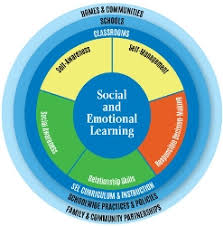Introduction
Education has traditionally focused on the cognitive aspects of learning, emphasizing critical thinking and problem-solving skills. However, an increasing realization of the importance of social and emotional aspects in learning has led to a broader understanding of what constitutes a well-rounded education. In this article, we will delve into the significance of social and emotional aspects of learning and how they impact various facets of an individual’s success in life.
Understanding Social and Emotional Learning (SEL)
Social and Emotional Learning (SEL) is an educational approach that promotes the development of skills necessary for understanding one’s emotions, maintaining strong relationships, empathizing with others, making responsible decisions, and managing stress effectively. SEL helps students become more self-aware, socially competent, and emotionally resilient. It empowers individuals to navigate an increasingly complex and interconnected world with confidence.
The Five Key Components of SEL
The Collaborative for Academic, Social, and Emotional Learning (CASEL) identified five key components that underpin SEL:
1. Self-awareness: Understanding one’s emotions, strengths, weaknesses, and values while recognizing how these qualities impact behavior.
2. Self-management: Regulating emotions, coping with stress, setting goals, and staying organized.
3. Social awareness: Empathizing with others’ feelings and perspectives while appreciating diversity.
4. Relationship skills: Building healthy relationships based on open communication, cooperation, negotiation, active listening, and conflict resolution.
5. Responsible decision-making: Evaluating situations from multiple perspectives to make informed choices that align with ethical standards.
The Importance of Incorporating SEL in Education
Integrating SEL into the education system leads to numerous benefits:
1. Improved Academic Outcomes: Developing self-regulation skills allows students to focus better on their studies, fostering higher academic achievement.
2. Enhanced Mental Health: SEL equips students to manage stress effectively and maintain a healthy emotional balance.
3. Reduction in Behavioral Issues: Emotionally intelligent students are less likely to engage in bullying, violence, substance abuse, or other self-destructive behaviors.
4. Better Interpersonal Relationships: Socially competent individuals build strong, supportive connections with peers and adults, amplifying their sense of belonging.
5. Long-term Success and Happiness: The skills developed through SEL set the stage for personal and professional achievements that contribute to a fulfilling life.
Promoting Social and Emotional Learning
Educators, parents, and community members can jointly foster SEL by implementing the following practices:
1. Brainstorm collaborative projects encouraging teamwork and problem-solving within diverse groups.
2. Create opportunities for students to engage in heartfelt conversations that encourage empathy and compassion.
3. Encourage mindfulness activities such as meditation and yoga, which promote self-awareness and stress reduction.
4. Develop a safe classroom environment in which students feel comfortable openly discussing their feelings and challenges without fear of judgment.
Conclusion
The social and emotional aspects of learning are crucial for nurturing well-rounded individuals who can navigate life’s challenges with confidence. By incorporating SEL into the education system, we empower our youths with the skills necessary for achieving personal and professional success while cultivating a more compassionate society.





